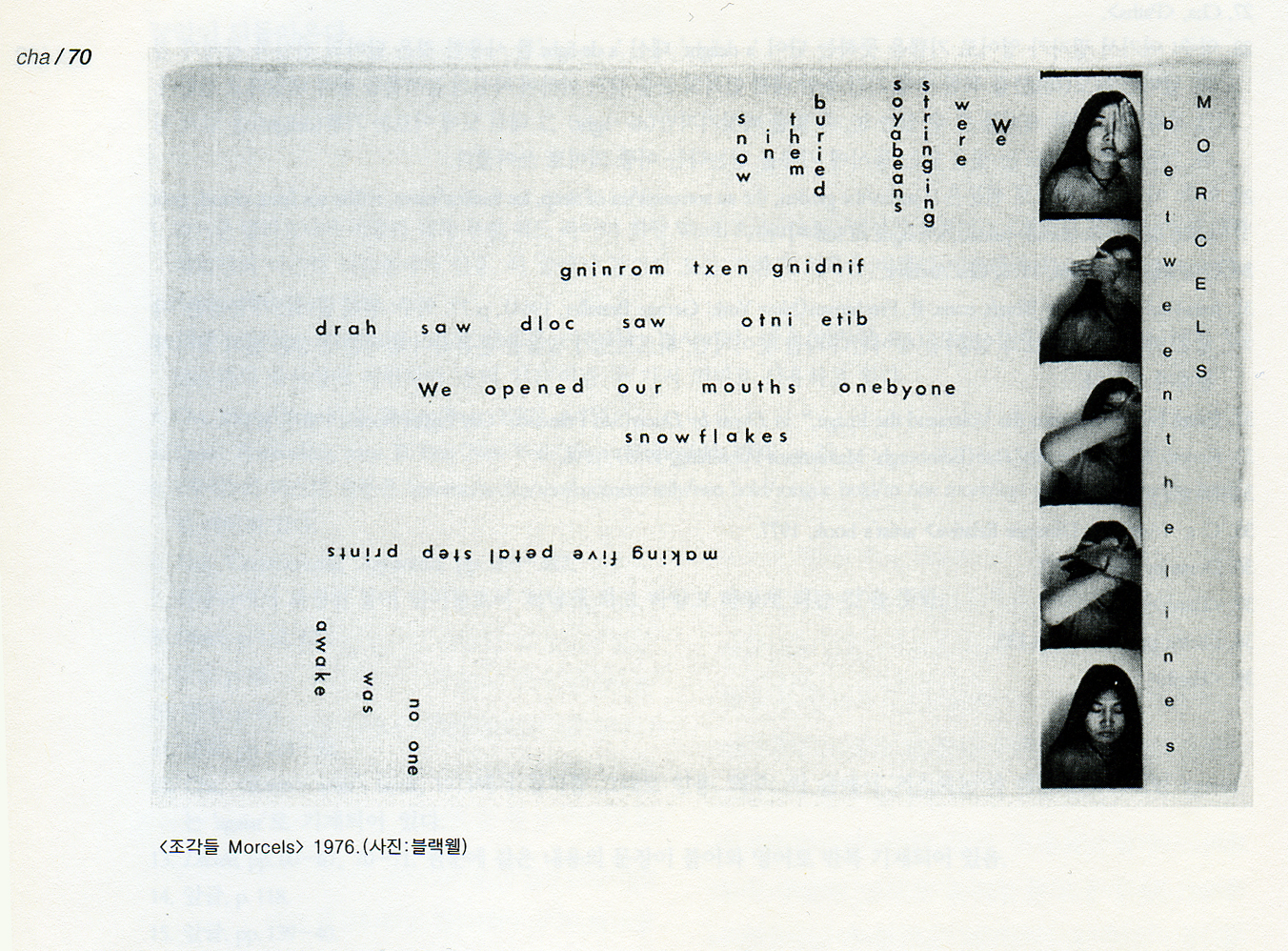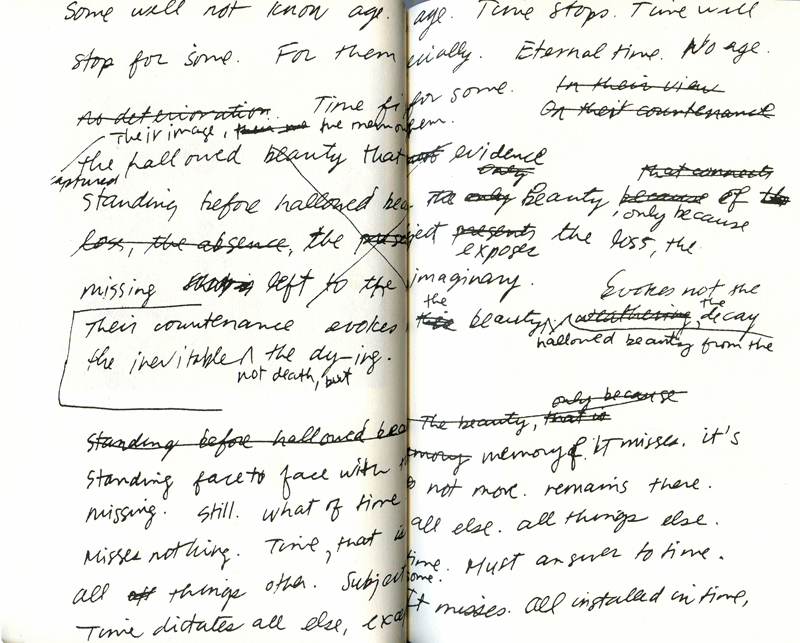Taey Iohe
Translation in transit

As an art practitioner, Hak Kyung Cha’s legacy is not only the written work itself within a published text, but also the performance of writing in her transcultural and multilingual space. This paper address the diverse activity of performative writing within Dictée, and how this places important landmarks for the current generation of visual art practitioners; newer artists have been empowered and inspired to pursue the construction of aesthetic and cultural knowledge without recourse to older constricting and politically loaded frameworks for theoretical proofs and empirical models for logical arguments.
Cha wrote down her dreams, perceptions, attentions, and fore-grounded her language acquisition practices, embedded her interpretations, wording choice, and conceptual assumptions. At times she migrates from Korean to other languages as she writes. Her writing is complex and non-linear. Her ethnographical approach became a guidebook for post-modern writing and postcolonial literature in Asian American literature. Research already examined her work within philosophical frameworks; she has been captured within a definition of nonlinearity with a post modernist agenda, or her works have been a politico-economic mark of transnational art.
In this paper, I emphasise Cha’s artistic attempts to conjure a relationship between the original actuality of her immigration experiences and her interpretation of that diasporic experience. And further, this paper examine the relationships between the physicality of writing, the physicality of embodied diasporic experiences, and their embodiment in language, even as language is subjected to severe pressures both due to migratory experience and on the part of the artist. The “language” of Dictée is far from a simple and static record or equivalence of experience.
Part of Cha’s genius lies in her ability, thoughout Dictée, to problematise the equivalence between language and experience, bringing into play visual and representative languages.
Does this indicate resistance towards to the original text or does this validate the importance of original text? This paper will examine Cha through the lens of performative, transformative and un-written languages to come to a greater understanding of her ability to characterize her and our experience at the points where learnt language breaks down.

Digitalised image of from Cha’s Journal in the Archive
Excerpt from a presentation at the 21st Annual American Literature Association Conference (May 27-30, 2010, San Francisco, US).
This research process is interconnected to;
︎︎︎ she went through the walls, strata of dialogue,
dear imaginary audience.